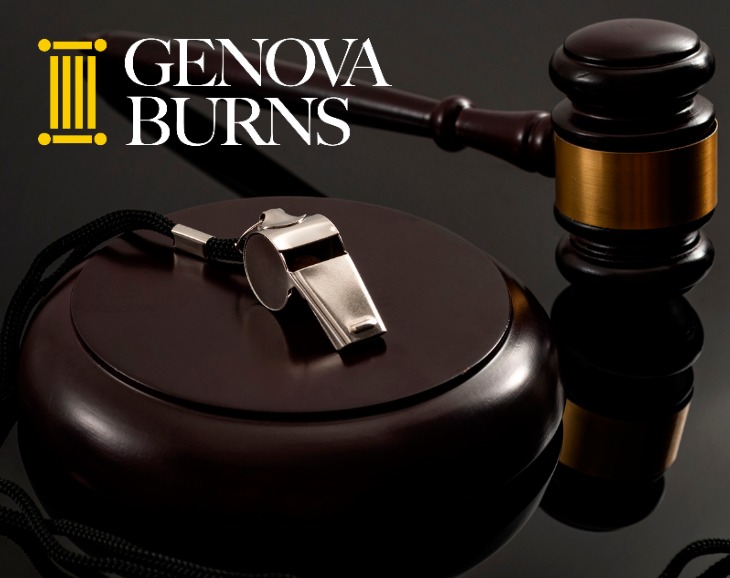2020: The Year of the Mole? New Jersey Appellate Division Grants Employee A Second Chance to Pursue Whistleblower Claim
January 22, 2021
In the final throws of 2020, a former Rutgers employee was granted a second chance to pursue her whistleblower claim. On December 29, 2020, the Superior Court of New Jersey, Appellate Division, in Debra Herbe v. Rutgers University, reversed a Superior Court’s grant of summary judgment for Rutgers University in a lawsuit brought by a former employee who alleged that the University fired her in retaliation for lodging a complaint against her supervisor. In the new year, the former employee will get another chance to pursue her claim against the University.
Facts
Debra Herbe worked as a Clinical Nurse Coordinator in the Child Health Program at Rutgers University. On May 22, 2012, Ms. Herbe utilized the University’s anonymous employee hotline to lodge a complaint against her supervisor and a co-worker. Herbe alleged that her supervisor enlisted a subordinate to write the supervisor’s application for Rutgers’s graduate nursing program. Herbe claimed that the supervisor and subordinate dodged their work assignment of auditing patient charts for two workdays, preparing the supervisor’s application instead.
Rutgers investigated, concluding that Ms. Herbe’s claims were, “completely founded,” and counseled and/or disciplined the subjects of Ms. Herbe’s complaint. According to Ms. Herbe, thereafter, the co-worker referred to her as a “mole,” the supervisor began to discipline her, interfered with her supervisory duties, made rude comments to her about her personal appearance, and reduced her performance ratings.
By March 2014, Ms. Herbe was diagnosed with Post-Traumatic Stress Disorder (PTSD) and depression. Ms. Herbe’s psychologist opined that the disability stemmed from her work environment and was so severe that she would no longer be able to work. Herbe took three extended leaves of absence from work, and when the psychologist could not provide Rutgers with a definitive return to work date, Herbe was terminated in May 2014.
In May 2015, Plaintiff filed a lawsuit against Rutgers alleging she was discharged in retaliation for her complaint and in violation of the Conscientious Employee Protection Act (CEPA).
Superior Court’s Ruling
On April 22, 2019, after years of discovery, the Superior Court granted Rutgers’s motion for summary judgment, concluding that Ms. Herbe could not make out a prima facie CEPA case. A plaintiff asserting a CEPA claim must establish that (1) she reasonably believed that her employer's conduct was violating either a law, rule, regulation promulgated pursuant to law, or a clear mandate of public policy; (2) she performed a whistle-blowing activity; (3) an adverse employment action was taken against her; and (4) there is a causal connection between the whistle-blowing activity and the adverse employment action.
The Superior Court found that the conduct Ms. Herbe complained of on the employee hotline was not a violation of a law, but rather a minor infraction falling outside the scope of CEPA. The court also found that Ms. Herbe failed to show that her supervisor’s alleged retaliatory actions following her complaint constituted an adverse employment action because her position and salary were not affected, and because all of the actions taken against Ms. Herbe after she “blew the whistle” were due to her poor performance. Finally, the court concluded that there was no causal nexus between Ms. Herbe’s complaint and her termination because she was terminated due to her inability to return to work from her leave of absence. Plaintiff appealed.
The Appellate Division Decision
On appeal, Herbe argued that she believed her co-workers were guilty of time theft, plagiarism, and fraudulent activity. She further argued that her supervisor’s behavior following the complaint constituted adverse employment actions under CEPA. Finally, she argued that a causal connection between her complaint and termination existed because her inability to return to work was due to defendant’s retaliation.
The Appellate Division concluded that viewed in a light most favorable to Ms. Herbe, the conduct she complained of on the employee hotline was not a minor infraction and, in any event, whether the alleged conduct was sufficiently serious was a fact issue more appropriate for a jury to assess. Further, the Appellate Division found that there was a genuine issue of material fact as to whether Ms. Herbe’s supervisor’s alleged conduct following her complaint constituted an adverse employment action. Finally, the Appellate Division found that a jury should assess both parties’ evidence regarding whether there was a causal connection between Ms. Herbe’s leaves of absence and her work environment. The Appellate Panel concluded that the genuine issues of material fact raised could not be adjudicated on a motion for summary judgment, reversed the lower court’s order granting Rutgers summary judgment, and remanded Ms. Herbe’s case for further proceedings.
Bottom Line
This case underscores the high hurdle employers face when seeking a favorable dispositive outcome on summary judgment for a CEPA claim. CEPA is one of the broadest whistleblower protection laws in the country. The Appellate Division’s opinion reminds employers to take caution before terminating an employee who has engaged in whistleblowing activity. While the employer here appears to have done just that, it will require a jury to vindicate its decision.
If you have any questions about the Appellate Court’s decision or would like to discuss best practices in complying with New Jersey’s employment laws and defending whistleblower actions, please contact John C. Petrella, Esq., a Partner & Chair of the firm’s Employment Litigation Practice Group, via email here, or Katherine E. Stuart, Esq., Associate in the firm’s Employment Litigation Practice Group and Human Resources Counseling & Compliance Practice Group, via email here, or call 973-533-0777.
Tags: Genova Burns LLC • Rutgers Univesity • Employment Law & Litigation • Whistleblower • CEPA • Appellate Division • John C. Petrella • New Jersey • Katherine E. Stuart

